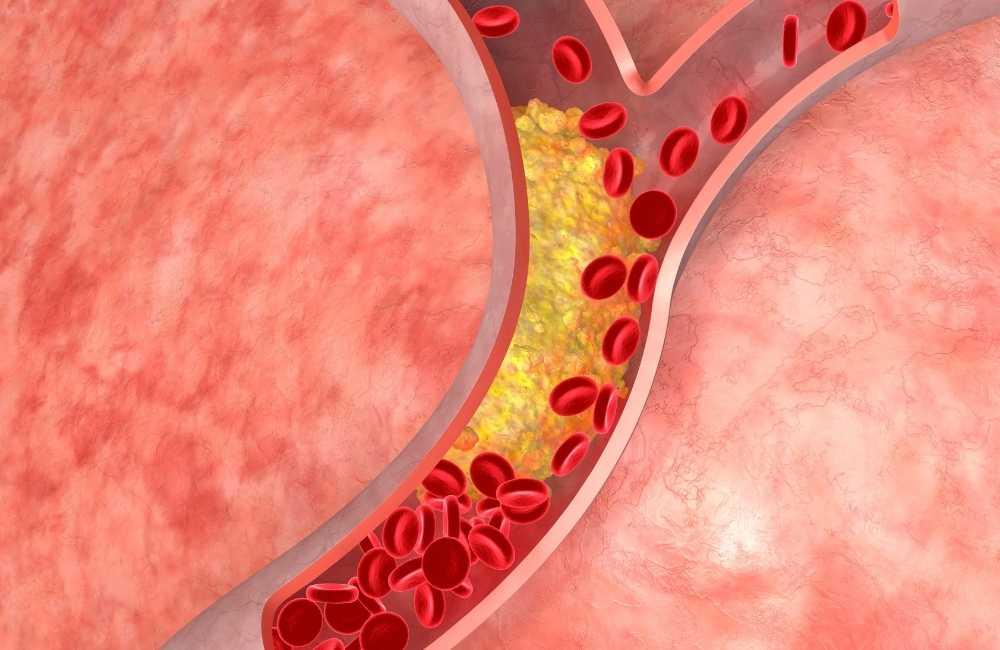Almonds are the edible seeds of Prunus dulcis, more commonly called the almond tree. It is native to the Middle East and other countries like Spain, Morocco, Greece, and Israel but the US is now the world’s largest producer of almonds.
They have a hard, green shell, which cracks open right before harvest. After harvest, they are dried, and the shell and hull are removed. That is when they then look like the little brown almonds you know and love to enjoy.
Today, it is sold in various forms: raw or roasted, whole or sliced, milk, paste or oil. All are unique and good depending on your choice.
The Nutritional Value of Almonds
Almonds have complex food matrices containing diverse nutrients and other photo protective substances that favorably influence human physiology. Almond nuts are energy dense and contain high levels of fat, but much of this is unsaturated.
Almonds are a rich source of many essential nutrients including vitamin E and several trace elements. There are evidences that have proven that almonds are beneficial in reduction of heart disease risk factors especially high plasma cholesterol. It can also play positive role in healthy weight maintenance and weight loss.
Let us look at the nutrition information, for one ounce of almonds(28g) or about 24 whole almonds as provided by the USDA:
- Calories: 164
- Fat: 14.2g
- Sodium: 0.3mg
- Carbohydrates: 6.1g
- Fiber: 3.5g
- Sugars: 1.2g
- Protein: 6g
- Vitamin E: 7.3mg
- Magnesium: 76.7mg
Carbohydrates: A single serving provides 6.1g of carbohydrate. They are a good source of fiber and have a lower glycemic index than many other nuts, making them a good choice for people on low-carb diets.
Fats: Almonds are high-fat foods. It provides about 22% of the recommended daily amount of fat in a single ounce. Most of the fat found in almonds is monounsaturated fat which has cardio-protective properties. There is just over 1g of saturated fat, 9g of monounsaturated fat, and 3.5g of polyunsaturated fat in a serving of almonds.
Protein: They are a good source of plant-based protein, containing small amounts of all the essential and non-essential amino acids. There are 6g of protein in an ounce of almonds.
Vitamins AND Minerals: One ounce contains 37% of the daily recommended intake of vitamin E, 8% of the daily recommended amount of calcium, and 6% of the daily recommended amount of iron.
Vitamin E confers antioxidant properties and supports immune function.
Calcium is essential for strong bones and teeth. Iron helps in the production of certain hormones and getting oxygen to the muscles.
Almonds are rich in magnesium and manganese. Magnesium is involved in over 300 metabolic pathways which includes energy production, protein synthesis, cell signalling, and structural functions like bone formation.
Manganese is vital in carbohydrate, amino acids, and cholesterol metabolism.
They are also high in potassium so it’s good for persons that want high potassium /low sodium diet as the sodium content is low.
Calories: They can provide about 164 calories per single ounce. Most of the calories are from the healthy fat, with smaller amounts coming from carbohydrates and protein.
The Phytochemical Content of Almonds
- Benzaldehyde: This is what gives sweet almonds their characteristic smell.
- Phenolic compounds.
- Phytosterols.
- Flavonoids: Catechin, epicatechin and kaempferol.
- Phenolic acids: Phytic acid (a healthy antioxidant but hinders absorption of certain minerals).
The Health Benefits of Almonds
-
Can Lower Cholesterol Levels
High levels of LDL lipoproteins (bad cholesterol) in your blood is a well-known risk factor for heart disease. Your diet contributes a lot to the level of LDL in your blood.
It has been demonstrated through studies that almonds effectively lower LDL. This is because almonds are high in fat, but it is unsaturated fat and does not increase the risk of low-density lipoprotein (LDL) or “bad” cholesterol.

In addition, they don’t contain cholesterol, in fact it helps to lower overall cholesterol levels. Almonds also increase vitamin E levels in the plasma and red blood cells and according to researchers, vitamin E is an anti-oxidant that can actually help stop the oxidation process that causes cholesterol to clog the arteries.
-
Can Lower the Risk of Cancer
It was seen through research that persons who consumed higher quantities of peanuts, walnuts and almonds have a two- or three-times lower risk of breast cancer. This means that these nuts mentioned appear to be a protective factor for development of breast cancer.
-
Reduces Risk of Diabetes
Almonds have been shown to improve insulin sensitivity and lowered LDL cholesterol before the prediabetes stage.
It was also discovered through research that the high content of magnesium in Almonds is a plus in blood sugar control in persons with diabetes. This is because most persons having type 2 diabetes are deficient in magnesium, so correcting this deficiency significantly lowers blood sugar levels and improves insulin function. People without diabetes too, experience major reductions in insulin resistance when supplementing with magnesium.
This indicates that high-magnesium foods as almonds may help prevent metabolic syndrome and type 2 diabetes, both of which are major health problems.
Magnesium is a mineral involved in more than 300 bodily processes, including blood sugar control.
These nuts are low in carbs but high in healthy fats, protein and fiber. This makes them a perfect choice for persons with diabetes.
-
Almonds Support Gut Health
It was discovered through comprehensive research that consuming the nuts can support colon health by promoting microflora richness and diversity, improving the microflora ratio, and boosting concentrations of health-promoting colonic bioactive.
-
Control and Manage High Blood Pressure
The high magnesium content of almonds may additionally help to lower blood pressure levels. High blood pressure is one of the leading drivers of heart attacks, strokes and kidney failure.
A deficiency in magnesium is strongly linked to high blood pressure regardless of whether you are overweight. Studies have shown that correcting a magnesium deficiency can lead to reductions in blood pressure. It is recommended you add almonds to your diet to be able to meet up the dietary requirements of magnesium.
-
Prevent Harmful Oxidation of LDL Cholesterol
They do not just lower LDL levels in your blood., they protect the LDL from oxidation, which is a crucial step in the development of heart disease.
Almonds are packed full of antioxidants due to its rich content of polyphenols and coupled with the vitamin E content, the effect is even stronger.
-
Almonds Reduce Hunger Level
Almonds are low in carbs and high in protein and fiber. Protein and fiber are known to increase feelings of fullness. This helps you consume fewer calories.
Eating them daily significantly reduce hunger and the desire to eat. Numerous studies have proven that nuts have a hunger-fighting effects.
-
Effective in Weight Management
Almonds though high in fat, are definitely a weight-loss-friendly food. Nuts contain several nutrients that your body struggles to break down and digest. Your body does not absorb about 10-15% of the calories in nuts.
There are equally some evidences that eating nuts can boost metabolism slightly. Due to their satiating properties, nuts are a great addition to an effective weight loss diet.

-
High in Antioxidants
Antioxidants help protect against oxidative stress, which damage molecules in your cells and contribute to inflammation, aging and diseases like cancer.
These powerful antioxidants are largely concentrated in the brown layer of the skin so don’t choose blanched almonds if you want to benefit from the antioxidant effect of almond nuts.
-
High in Vitamin E
Vitamin E is a fat-soluble vitamin and an antioxidant. The antioxidants tend to build up in the cell membranes in your body, protecting your cells from oxidative damage.
Almonds are among the world’s best sources of vitamin E.
There have been studies to suggest that higher intake of vitamin E lowers rate of heart disease, cancer and Alzheimer’s disease.
Almonds vs Allergy
People that have nut allergy should avoid almonds. If you experience hives, swelling and difficulty in breathing after eating, then seek medical help immediately.
A condition known as anaphylaxis can develop fast and it is life-threatening. Please check with the label of premade foods and ensure it does not contain nuts.
Choking and Aspiration Hazard
Choking on whole nuts is usual with young children and some older people or even persons who find it difficult to swallow should avoid whole almonds.
Persons with dementia, Parkinson’s disease and reduced mobility may have a higher risk of aspiration, which can cause food to enter the lungs and can cause complications such as pneumonia.
Different Presentation Forms of Almond Nuts
- Whole almonds (raw or roasted)
- Almond flour
- Almond butter
- Almond oil: Almond oil can be used on your skin as a silky-and delectably fragrant- moisturizer.
- Almond milk
Conclusion
Almonds provide a nutrient-dense source of vitamins, minerals and fibers. They also provide an excellent source of bioavailable vitamin E and this helps to resist LDL oxidation. Most of these have been mentioned before now but it is worthy to note that in summary all these make almonds healthy food choice!
These nuts are considered to be an important component of a healthy diet, and increased consumption has the potential to improve public health, especially if they replace foods that are high in saturated fatty acids, sugars and salt, or those lacking in vitamins, minerals and phytoprotective constituents.
It is time to go “nuts” on almonds! A healthy food choice!

